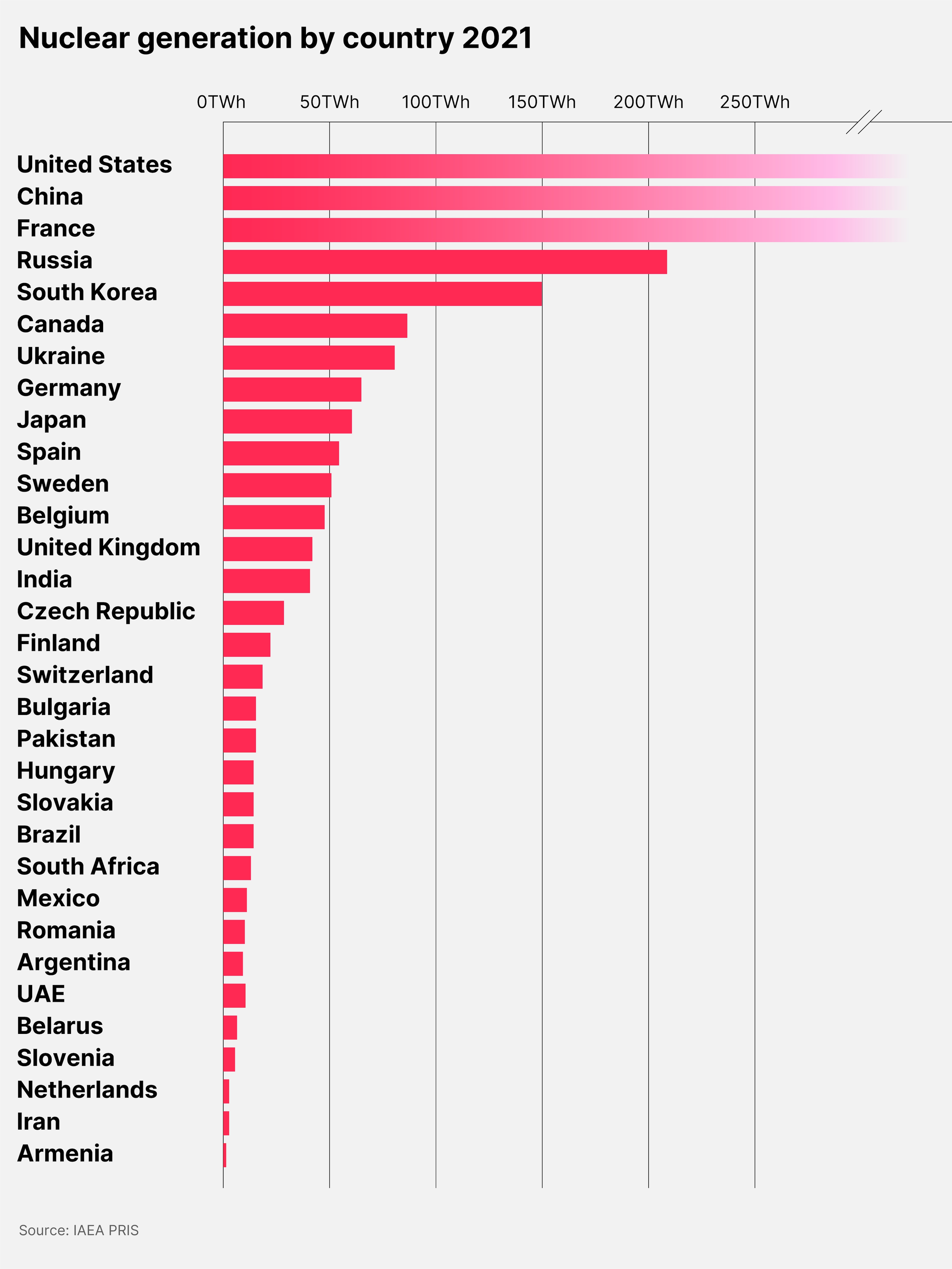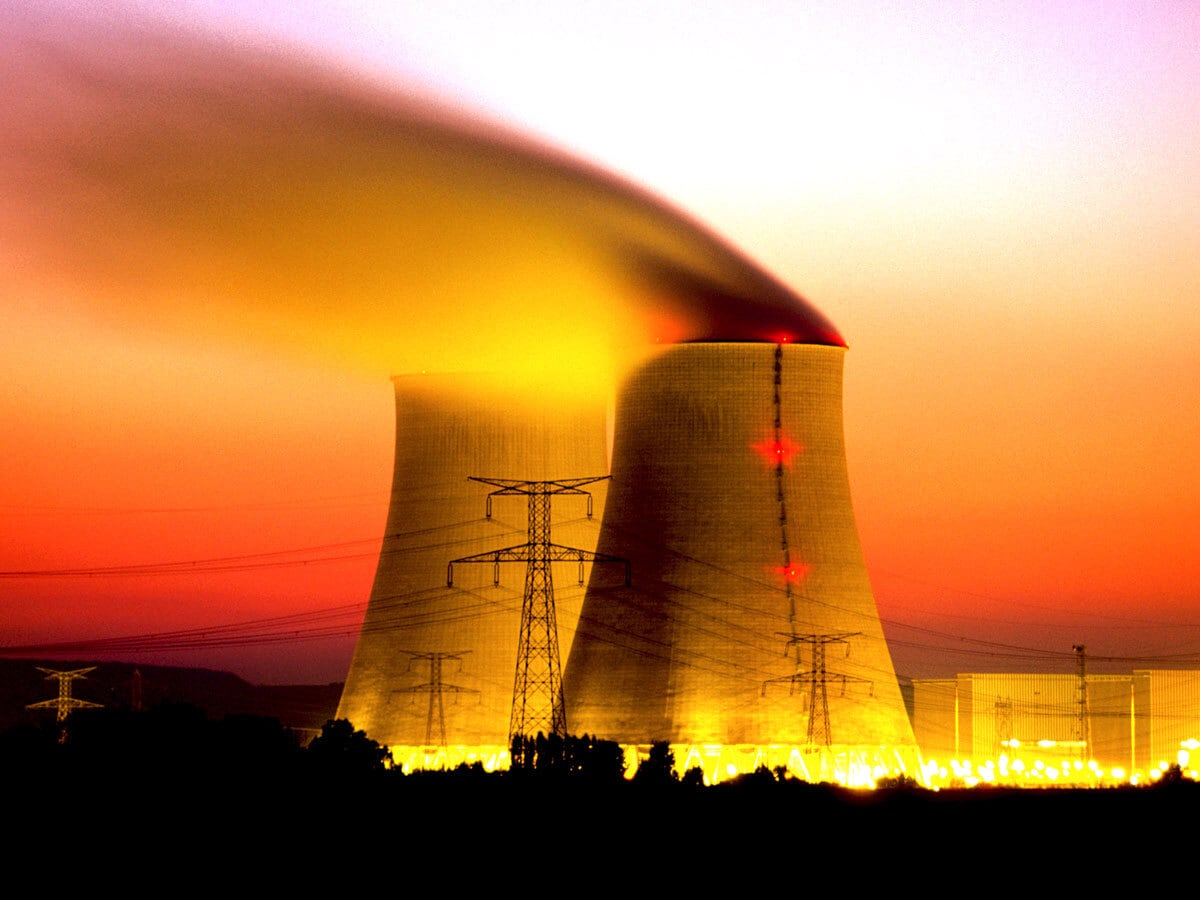Nuclear power is often demonised, but it has the potential to decarbonise the world’s energy supplies, according to Doomberg, one of the top financial newsletters on Substack. Doomberg recently joined OPTO Sessions to talk through its investment case for the energy source.
In the volatile clean energy sector, Doomberg believes one power source has the clear edge.
“If you truly care about carbon emissions, then you can’t be opposed to nuclear energy. And if you’re opposed to nuclear energy, you can’t truly care about carbon emissions. That’s the logical view from our end,” Doomberg told OPTO Sessions.
President Eisenhower gave his support for nuclear energy back in the 1950s.
“He championed Atoms for Peace and gave birth to the civil use of nuclear energy that we enjoy today. We would not have 90-plus operating reactors in the US turning out baseload power with 90–93% capacity factors were it not for his efforts,” says Doomberg.
Since then, however, negative perceptions have stymied the evolution of nuclear as an energy source, with civilian nuclear energy sometimes conflated with bombs. Doomberg blames “Malthusian environmentalists, who are opposed to primary energy development, because they believe that it puts too big a burden on the rest of the planet’s resources.
“They invented reasons to be opposed to nuclear energy. Most effectively, they’ve scared people around the subject of nuclear meltdown and the ‘toxicity’ of nuclear waste.”
Now attitudes are finally shifting. “They’re beginning to lose that argument, but it has been extremely successful in both stunting the growth of nuclear energy and making it more expensive.”

Irrational Worries
Fears around nuclear safety remain, but they can be irrational, believes Doomberg.
“We have looked, and others have looked. We cannot identify a single person who’s ever been injured from nuclear waste on the planet.”
On the other hand, hydroelectric dams pose very real risks. “We wrote a piece long ago about a major collapse of a dam in China in the 1970s because of a freak storm, and they can’t even count the number of people who were killed — estimates range from 50 to 200,000.”
Trade-offs around risks are an important part of the nuclear debate.
“We can have intelligent discussions about the trade-offs between the safe handling of a minuscule amount of nuclear waste, which we know how to do, versus blighting the landscape with solar panels, or killing people with hydroelectric dam collapses, or completely redirecting entire watersheds in the name of creating hydroelectricity, like in Quebec, famously, with the James Bay project.”
Of the many myths surrounding nuclear, Doomberg seeks to demystify one regarding waste: “We only typically use about 5% of the embodied potential energy in uranium.
“We have looked, and others have looked. We cannot identify a single person who’s ever been injured from nuclear waste on the planet”
“What we call waste today is really just a future generation’s fuel source, because you could run them through fast breeder reactors, reconstitute them and get more of the energy back out a second, third or fourth time.”
Imaginary Headwinds
Ultimately, nuclear power’s future will likely depend on whether wider attitudes change.
“The hurdles to it are artificial and political, not scientific,” says Doomberg.
For now, nuclear remains costly, but, if developed at scale, “it would become less expensive, not more”.
Its infrastructure is also generally robust: “A hailstorm is not going to hurt a nuclear power plant, but it wiped out 1,000 or 2,000 solar panels,” said Doomberg, referring to an accident that damaged a Texas solar farm in March.
There is an opportunity for nuclear to become a greater part of the energy mix worldwide, according to Doomberg. Small modular reactors may be used with a smaller ‘radius of concern’, to produce “industrially significant temperature grades of steam”, which could reduce the need for natural gas.
How crucial is nuclear energy overall to achieving global decarbonisation in future? Here Doomberg’s answer lives up to their name. “We certainly can’t achieve it without nuclear energy. But I don’t know that we can achieve it even with nuclear energy.
“What we call waste today is really just a future generation’s fuel source, because you could run them through fast breeder reactors, reconstitute them and get more of the energy back out a second, third or fourth time”
“Every molecule of fossil fuels produced will be burned by somebody somewhere and local restrictions against that merely shift who has the privilege of doing it. We see that with the latest data out of the Statistical Review of World Energy. The emerging world is burning as much fossil fuel as they can get their hands on and who could blame them, because this is the path out of energy poverty for them.
“Emissions in the developed world are actually flat to declining. And yet global emissions are still rising, because the offset is being soaked up over there. If we produce a bunch of nuclear here and stop burning natural gas to produce electricity, for example, unless we stop producing natural gas, somebody else will buy it and burn it. The gating function of consumption is production.”
Despite this somewhat bleak picture, Doomberg says that, whatever happens, nuclear is a key part of the story. “There’s no theoretical way even, we think, to do it without nuclear.”
Disclaimer Past performance is not a reliable indicator of future results.
CMC Markets is an execution-only service provider. The material (whether or not it states any opinions) is for general information purposes only, and does not take into account your personal circumstances or objectives. Nothing in this material is (or should be considered to be) financial, investment or other advice on which reliance should be placed. No opinion given in the material constitutes a recommendation by CMC Markets or the author that any particular investment, security, transaction or investment strategy is suitable for any specific person.
The material has not been prepared in accordance with legal requirements designed to promote the independence of investment research. Although we are not specifically prevented from dealing before providing this material, we do not seek to take advantage of the material prior to its dissemination.
CMC Markets does not endorse or offer opinion on the trading strategies used by the author. Their trading strategies do not guarantee any return and CMC Markets shall not be held responsible for any loss that you may incur, either directly or indirectly, arising from any investment based on any information contained herein.
*Tax treatment depends on individual circumstances and can change or may differ in a jurisdiction other than the UK.
Continue reading for FREE
- Includes free newsletter updates, unsubscribe anytime. Privacy policy





